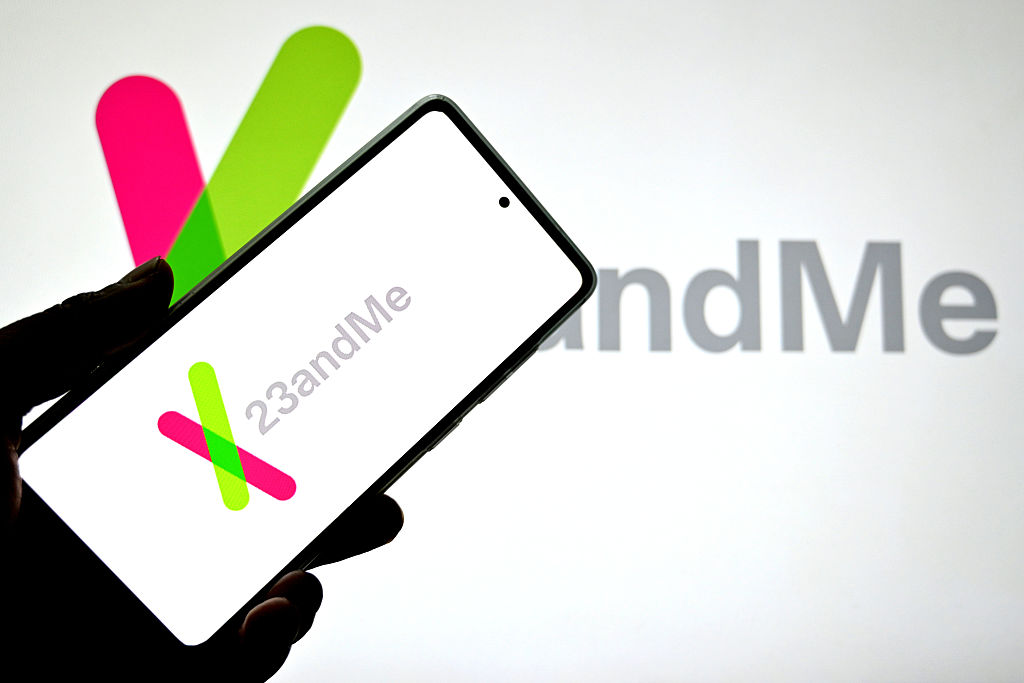Editorial Note: Opinions and thoughts are the author’s own and not those of AFROTECH™.
The question of who controls your data and how it’s used has been a topic of discussion since the dawn of the internet. The rise of social media giants like Meta and X has only heightened awareness and concern around data privacy.
What happens when data collection goes beyond your age and interests to your genetic makeup? That’s the concern surrounding the recent news about 23andMe. As reported by AP News, the company has filed for Chapter 11 bankruptcy after former CEO Anne Wojcicki’s attempt to buy back the company’s assets fell through. Founded in 2006 by Wojcicki, Linda Avey, and Paul Cusenza, 23andMe was created to empower consumers with insights about their genetic makeup to inform health decisions. As reported by CTech, the company went public at a $3.5 billion valuation and was once valued as high as $6 billion. In addition to consumer-focused tests, 23andMe has contributed to genetic research and built one of the world’s largest genetic databases, sparking significant concern. However, 23andMe isn’t the only player in this space.
Ancestry.com was founded in 1997 in Utah by Paul Allen and Dan Taggart with the goal of making genealogical research more accessible. Having worked in genealogy themselves, they understood how time-consuming it was to gather family history by visiting libraries, courthouses, and archives. They sought to simplify the process by leveraging the internet. They began by digitizing historical records such as census data, as well as birth, death, and marriage records. It wasn’t until 2012 that Ancestry launched AncestryDNA, providing users with deeper insights into their genetic makeup—helping them discover their racial and ethnic origins and reconnect with long-lost relatives or uncover ancestral ties. While concerns have been raised about 23andMe’s potential sale, they’re not the first in the space to go this route. As The Financial Times reported, Ancestry.com was acquired by private equity group Blackstone in 2020 for $4.7 billion.
Online sentiment has been overwhelmingly negative about the potential implications of selling this data. I have seen people across the internet start to assume that their data will be sold to law enforcement in some fashion or be used in some other unethical way. Black people, however, have reasons as to why they should be concerned about what a relationship between private industry and their health data could mean, due to two previous unethical events.
The first was the Tuskegee Study Of Untreated Syphilis in the Negro Male, commonly known as the Tuskegee experiments. These unethical experiments deceived 600 Black men in Macon County, Alabama, by falsely claiming they were being treated for “bad blood,” a term used locally at the time to describe a range of ailments. In reality, the men did not provide consent, were denied proper treatment, and were actively prevented by researchers from seeking care elsewhere, even when penicillin became the standard treatment for the disease in 1947. This neglect led to severe health complications not only for the participants but also for their descendants.
The second story is that of Henrietta Lacks, whose experience exposed not only the mistreatment of Black people but also the exploitation of Black women. At age 31, Henrietta sought medical care for vaginal bleeding and was diagnosed with cervical cancer. Without her consent, doctors took samples of her tumor cells, which later became known as HeLa cells—named after the first two letters of her first and last name. Henrietta died in 1951, yet her cells were used to develop groundbreaking treatments, including the polio vaccine, IVF, and cancer therapies, all without her family’s knowledge or compensation, while the healthcare system profited immensely. While these stories have fueled distrust between Black communities and the healthcare system, focusing too heavily on past injustices can hinder progress and compromise our collective future health.
Precision medicine, which emerged in the 1950s, focuses on tailoring treatment to an individual’s genetic makeup, environment, and lifestyle, moving away from the traditional one-size-fits-all approach. For Black communities to fully benefit from advancements in precision medicine, particularly in areas like cancer and infectious diseases, there needs to be a greater willingness to share data that can not only improve personal outcomes but also benefit the community at large. For instance, U.S. News & World reported that while Black people made up 28% of organ transplant candidates in 2020, only 12% of organ donors were Black. Statistics like these highlight the risk of missing out on life-saving medical advancements if we do not engage more proactively with the healthcare system—jeopardizing the opportunity for Black people to lead healthier, longer lives.

















